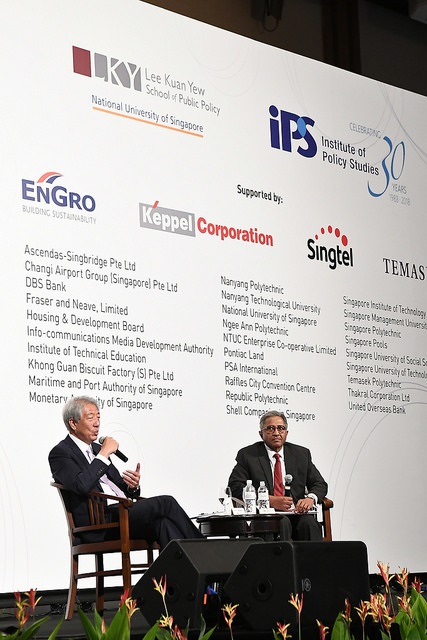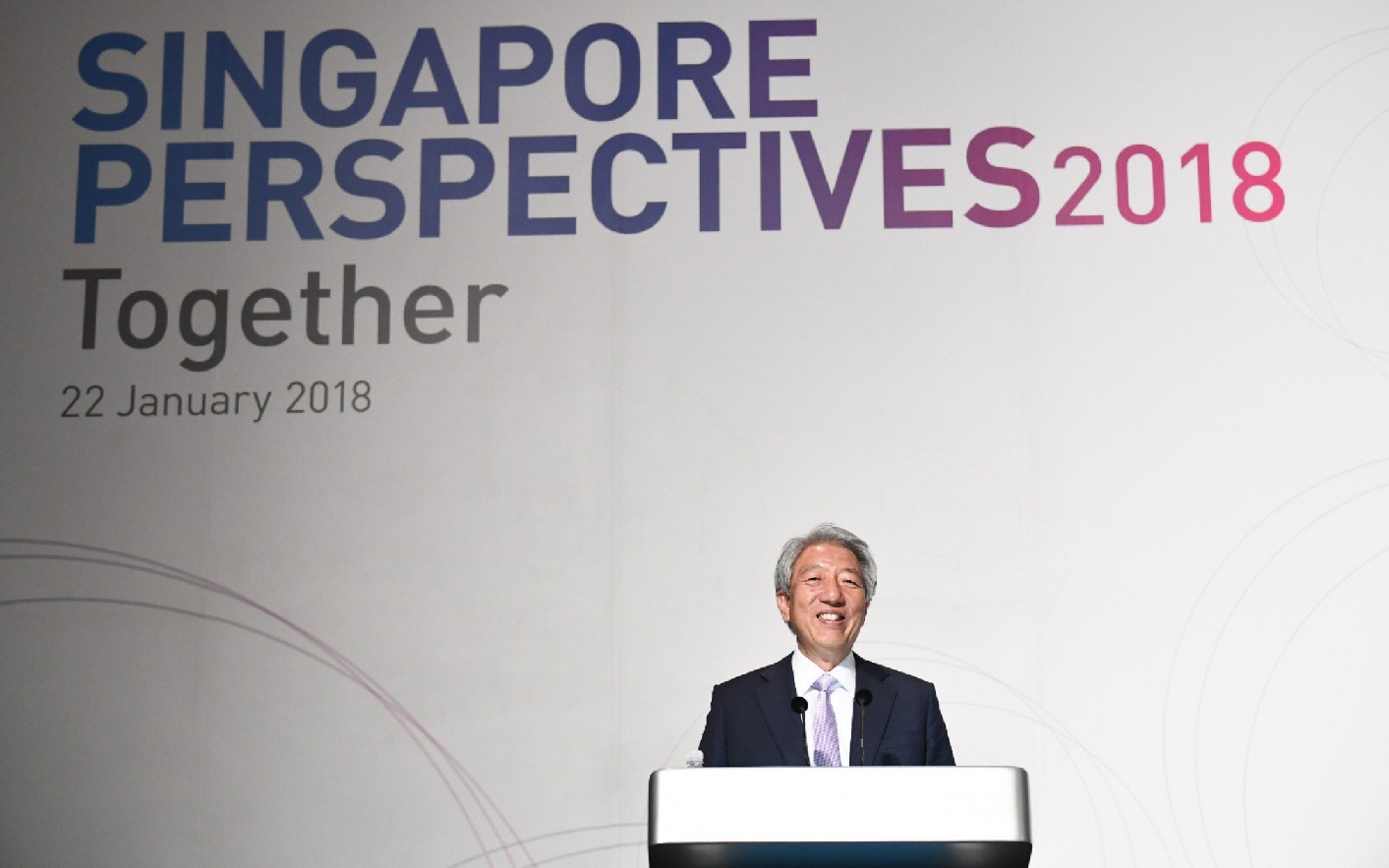It was perhaps a most unusual episode between the two prominent public sector figures of the Class of 1972.
Both born in 1954, Teo Chee Hean, Deputy Prime Minister, and Janadas Devan, Director of Institute of Policy Studies and the government’s Chief of Communications, spent lunchtime together on the stage to discuss a very important demographic challenge facing Singapore.
Class of 1972
The batch of the President’s Scholars from the class of 1972 are well-known.
Three of them — Teo, former Foreign Minister George Yeo and Trade and Industry Minister (Trade) Lim Hng Kiang -- were Singapore Armed Forces (SAF) scholars.
Lee Wei Ling became the director of the National Neuroscience Institute. Manpower Minister Lim Swee Say is also from the same cohort.
It was particularly fitting that the two soon-to-be-65 public service leaders — still vigorous, still on top of their game — were asked to discuss about the ageing issue in Singapore and the socio-economic challenges that it will pose to the country.
Inevitably, it also led to discussions on political leadership and leadership succession in Singapore.
Leadership succession
Janadas started the session at the annual Institute of Policy Studies' flagship conference Singapore Perspectives on a lighthearted note:
"I don't mind admitting my age, which is 63, the same age as our distinguished guest of honour (DPM Teo). And as you heard, he still runs, a fine specimen of active ageing. I'm not so fine a specimen (laughter in the crowd). I'm glad I can still walk (to even more laugher from the audience)."
But the issues discussed during the one-hour dialogue session were pretty serious ones.
Singapore is better prepared than the rest in dealing with the global phenomenon of ageing
In his opening speech, Teo said that while Singapore is ageing more rapidly than most countries, Singapore is better prepared than the rest.
He highlighted that Central Provident Fund (CPF) Life and Medishield Life are "game-changers", as Singaporeans now have a basic income and medical insurance for life.
He added that these national risk-pooling schemes meant that "we are all helping with one another to cope better together with the uncertainties associated with ageing".
However, government expenditure on health (2.4 percent of GDP in FY2016) is set to increase.
Teo expected that health expenditure may overtake education in Singapore's government budget in the upcoming years, noting that the government has to "make sure that our budget remains on a sound footing so that we have the resources to take care of our seniors as they age".
 Source: IPS Flickr.
Source: IPS Flickr.
How Singaporeans can contribute to a society that ages with vigour
Teo also hopes that Singaporeans can play their part to enable our seniors to embrace the opportunities that come with longevity, and to live life to the fullest, as a community.
Teo gave a few examples of how the community can help:
i) companies can use the grants available to re-design work places and jobs;
ii) a change in mindsets among the people working in the gig economy to include both the seniors and the millennials; and
iii) Singaporeans learning from Japan's community spirit in having very strong community-based support.
Teo said that the government is also doing its part.
The government has raised the re-employment age from 65 to 67 last year, and has introduced the Special Employment Credit, which helps companies pay part of the wages of workers aged 55 and above earning up to S$4,000 a month.
Teo highlighted that the Singapore Public Service has close to 3,000 public officers aged 65 and above, up from 500 in 2010.
The government has also created policies designed to encourage family members to help one another.
For instance, the government encouraged children to live together or close to their parents by giving priority for housing and grants. The government's tax policies also encourage inter-generational support through parent relief and grandparent caregiver relief.
[related_story]
Young leaders and leadership renewal
"I think it's important that as a country, we might grow older, but the leadership must not become aged as well. You need a certain vitality and energy to deal with the world.
Even though I can still keep on running, I know that I am not running in the same way that I was running five to ten years ago. There are a few more creaks, a few more aches, and you don't want a whole nation to be held hostage to the health of cohort of people who are already senior and getting more and more senior with each passing year. We don't want that to happen. So we need leadership renewal."
However, DPM Teo agreed with a participant, former Nominated Member of Parliament (NMP) Geh Min, that it would be useful to have a larger representation of older people in the Cabinet and the civil service:
"We are quite unique in that we've had former Prime Ministers sit in Cabinet as senior ministers or minister mentor. And that has been a great help to the younger ones of us at that time in the Cabinet.
And I hope that if we do have a transition in the future, that the new Cabinet, the new Prime Minister, may see the usefulness and benefit of such an arrangement as well. That comes from continuity."
Hint hint 4G PM. Please heed the advice of DPM SM Teo.
Top photo from Institute of Policy Studies Twitter
If you like what you read, follow us on Facebook, Instagram, Twitter and Telegram to get the latest updates.
